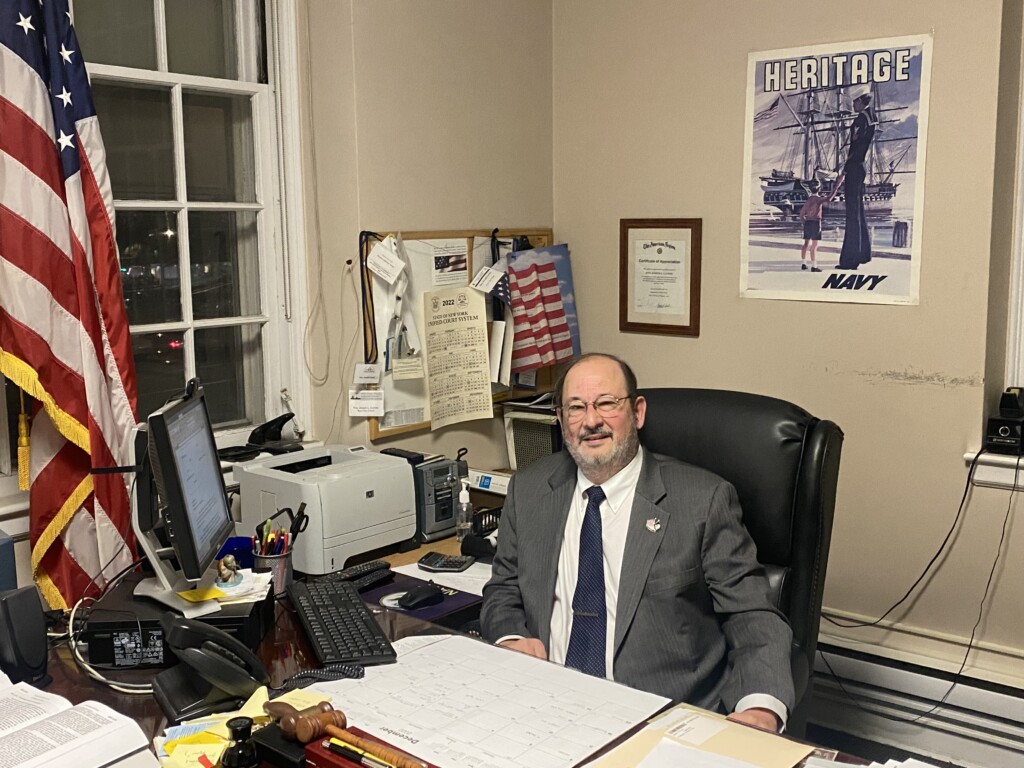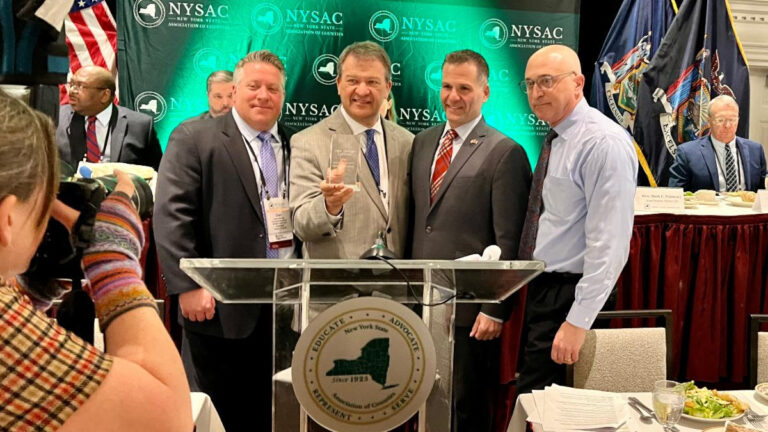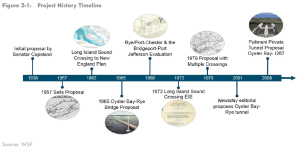Holding Court: The Thing Speaks for Itself

Holding Court is a series by retired Rye City Court Judge Joe Latwin. Latwin retired from the court in December 2022 after thirteen years of service to the City.
What topics do you want addressed by Judge Latwin? Tell us.
If you have failed to appreciate Latwin’s humor to date, this week he just might hook and land you on the deck of the USS Holding Court.
By Joe Latwin
The thing speaks for itself
That’s English for Res Ipsa Loquitor. (It’s not true that lawyers get paid more for using Latin but I do get royalties when they use Latwin!).
Res Ipsa is an evidentiary rule. It is not a basis for liability, only how you prove it. Normally, disputed facts must be proved by evidence. Sometimes it is direct evidence such as a witness who saw or heard what happened. Other times it is by circumstantial evidence such as by other facts that permit the jury to reasonably infer the fact exist. The term res ipsa loquitur was used in New York for the first time in 1874, in a case where a part of a building fell on the plaintiff. “Buildings properly constructed do not fall without adequate cause.” It had been used in England in 1870.
In a negligence case, the plaintiff must prove the defendant was negligent. Often the is no direct proof of negligence but the event would not happen in the absence of negligence. Res Ipsa does not create a presumption of negligence against the defendant. Rather, if the plaintiff can prove three things, the jury may but need not infer negligence. First, the plaintiff must prove that the kind of event does not ordinarily occur in the absence of negligence. The most common of these cases involve medical issues, such as when a foreign object (like a sponge) is left in an anesthetized patient during surgery. Sponges don’t naturally occur inside bodies (except in Bikini Bottom or in Squarepants). Second, it must have been caused by something in the exclusive control of the defendant. This prong usually involves not only surgical mishaps, but also elevator malfunctions. Exclusive control is not a rigid rule and has been applied in circumstances when “the accident occurred after the instrumentality left the defendant’s control, where it was shown that the defendant had exclusive control at the time of the alleged act of negligence”. The plaintiff does not need to eliminate all other causes, but, rather, must show that their likelihood is reduced so that the defendants’ conduct is more probably the cause. The plaintiff must show that the defendant’s control was sufficiently exclusive to fairly rule out some other agency causing the purported defect. Lastly, the action was not solely due to any action by the plaintiff. For example, a plaintiff who, ignoring warning signs, stuck her hands past a gate to adjust the luggage in her shopping cart that had become stuck was denied the benefits of a res ipsa jury charge.
Some other common situations where res ipsa is invoked involves underground utilities or drainage. The plaintiff will have no direct proof of what happened under ground but determining what happened and why is often difficult. Was the pipe defective or was it damaged by earthquake, surface pressure, subsidence below the pipe, or negligence?





